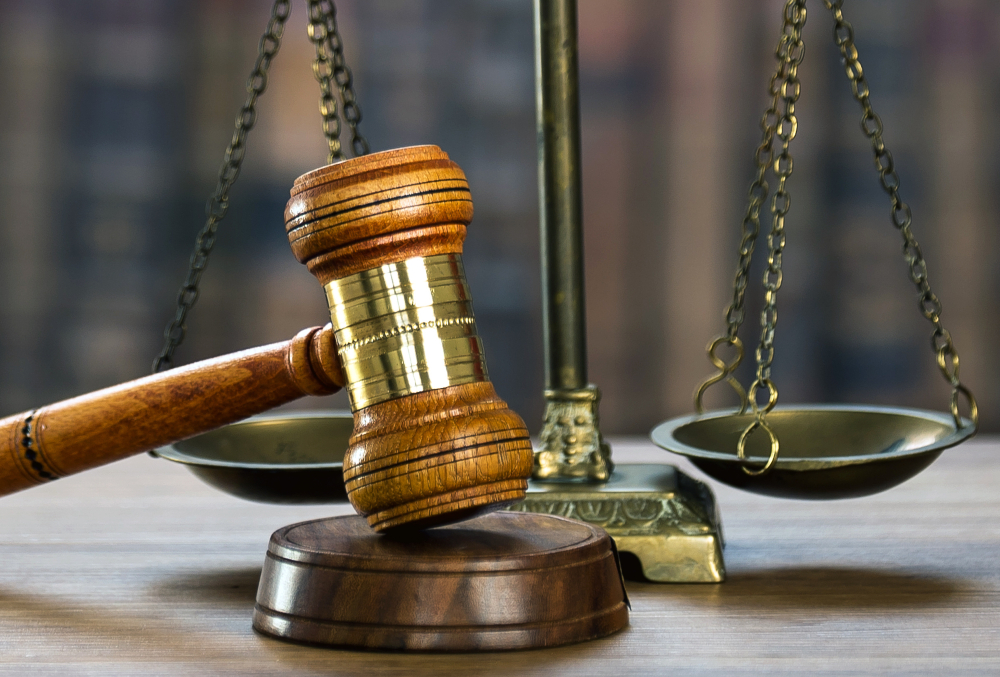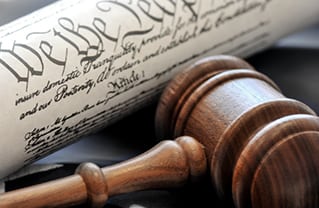
Florida Restraining Orders and Injunctions Lawyer. If you are seeking protection or have been served with a restraining order in Florida, you need legal guidance fast. At Fighter Law, our experienced Florida injunction lawyers help both petitioners and respondents understand their rights, navigate the court system, and protect their future. Whether you’re in Orlando or anywhere in Central Florida, our board-certified attorneys are here to help you through this high-stakes process.
What Is a Restraining Order or Injunction in Florida?
A restraining order — legally called an injunction — is a court order that prohibits someone from contacting, threatening, or going near another person. Florida law offers several types of injunctions depending on the situation. If granted, these orders can have serious, long-term legal effects.
- Domestic Violence Injunction
- Dating Violence Injunction
- Repeat Violence Injunction
- Sexual Violence Injunction
- Stalking Injunction (including cyberstalking)
What Can a Florida Injunction Lawyer Help With?
A restraining order can:
- Prohibit contact or communication
- Require someone to leave a shared home
- Block access to schools, homes, or workplaces
- Order temporary child custody or support
- Require counseling or treatment
Violating a restraining order is a criminal offense. Our injunction lawyers in Orlando make sure you understand exactly what your order means — and how to enforce or fight it.
Click here to learn how to GET an injunction.
Click here to learn how to FIGHT AGAINST an injunction.
Are You Seeking a Restraining Order?
If you feel threatened or unsafe, we help you file an injunction the right way. Our attorneys will walk you through what qualifies under Florida law, help you prepare your statement, and represent you at your court hearing. Learn more about your rights as a petitioner here.
Have You Been Served With an Injunction?
If you’ve been wrongfully accused or served with an injunction, time is critical. Our team helps you gather evidence, prepare for your hearing, and protect your name, rights, and reputation. Here’s what to do if you’ve been served.
Why Hire Fighter Law for Your Florida Injunction Case?
We are board-certified criminal trial attorneys with deep experience in Florida injunction law. Whether you’re looking for an injunction lawyer near you or a trusted Orlando restraining order injunction lawyer, Fighter Law provides elite legal service with personal care.
- Decades of experience with restraining orders and criminal defense
- Personal attention to every client
- Available for emergency filings and hearings
- Multilingual staff and online consultations
Contact a Florida Injunction Attorney Today
Whether you need to file for protection or defend your rights, our Florida injunction attorneys are ready to help. Contact us for a free consultation or call (407) 344-4837.
Click here to learn how to get text messages from someone else!
Frequently Asked Questions About Injunctions
-
Can a person lie in a petition for an injunction?
-
Which county court should I file my injunction in?
-
Can someone use text messages to get an injunction against me?
-
Will the Court drop an injunction if the petitioner fails to show up for the final injunction hearing?
-
What happens if the respondent does not show at the final injunction hearing?
-
Can a party (or parties) ask the Court to amend or later dismiss an injunction that the judge has entered?
-
What actions can the court take against me if it enters an injunction against me?
-
How can I have social media posts admitted into evidence at the final hearing for injunction?
-
How can I have text messages or e-mails admitted into evidence at the final hearing for injunction?
-
How can I appeal a final order of injunction?
Can a person lie in a petition for an injunction?
Yes, people can lie in injunctions. While injunctions are important to protect victims from legitimate violence and threats of violence, people do sometimes lie in their petitions. False injunctions happen all the time. People lie to get injunctions every day – as you Orlando injunction attorney, we are here to help you fight against that. A final injunction can have serious consequences to your future. While injunctions are not criminal, they have very much the same consequences as criminal cases.
There are many different theories as to why people lie. A skilled injunction lawyer in Orlando should be able to bring to light any motive or bias a petitioner may have to falsely seek an injunction.
Here are some of the theories clients have presented to me over the years:
-
Ex-girlfriends or ex-boyfriends may seek revenge on the other out of jealousy or spite.
-
Spouses going through a divorce in the middle of a heated custody battle over their children think that getting an injunction will win them favor with the family law court or help them get custody of the children.
-
When a former girlfriend learns her boyfriend has been cheating on her – or vice versa.
-
When one person simply wants to interfere with the life of the ex and make their life miserable by dragging them back into court over and over.
-
An ex-boyfriend or ex-girlfriend wants to embarrass the other by making false allegations against them in an open court.
-
To be able to gain control over the other person. If a person gets an injunction, all they have to do is call the police claiming the respondent is violating the injunction by calling them or coming near them – this often results in the arrest of the respondent.
-
One person wants to get the other kicked out the house to teach them a lesson.
- Mental illness – some people just lash out at others because they do not have to life skills needed to cope with difficult situations.
Which county court should I file my injunction in?
You can file for an injunction in the county where you live (either temporarily or permanently), where the respondent lives, or where the violence occurred. There is no minimum residency requirement. You should also look into what community legal support there may be for victims of domestic violence.
Can someone use text messages to get an injunction against me?
Yes, text messages can be used in injunctions. However, anyone can fake text messages. Therefore, in order to get them entered into evidence for the court to consider, you have to authenticate them. In other words, there has to be something that shows that the other person in fact sent you the text messages. Circumstantial factors can be used to “authenticate” the text came from a particular person. The case to read on this point is Walker v. Harley-Anderson, 45 Fla. L. Weekly D2116a – a 2020 4th DCA case. Some of the factors include context like the person’s name being contained in the messages; other witnesses who can testify that they have communicated with that person at that number, addresses, things like that which can be linked back to the person.
Will the court drop an injunction if the petitioner fails to show up for the final hearing?
Usually, yes. Absent exceptional circumstances, the court will usually dismiss or throw out the injunction and the respondent will be free to go. As your go-to Orlando injunction attorney, we can tell which judges are likely to do this – and which are not!
What happens if the respondent does not show at the final injunction hearing?
If the petitioner indicates to the court that he or she still wants the injunction, the court will usually grant the petition and enter an injunction against the respondent. The court will want to see proof that the respondent was served with notice of the hearing, however.
Can a party (or parties) ask the court to amend or dismiss an injunction that the judge has entered?
Yes. Florida law specifically allows for that. The party (or parties) must petition the court to modify or dissolve the injunction. But be warned – the injunction will NOT be considered amended or dismissed until the judge signs an order indicated such.
What actions can the court take against me if it enters an injunction?
The court has the authority to order you not to have any contact with the petitioner, to order you to attend classes (including the batterer’s intervention program), to prohibit you owning or possessing any firearms, to have supervised visitation with any children in common and any other conditions the court deems necessary to protect the petitioner.
How can I use social media posts?
To get a judge to enter a social media post into evidence (so it can be considered for the injunction), you must authenticate it. The court wants to make sure that it is not a fake and that it actually what you say it is. Proper authentication requires only that the proponent of the evidence make out a prima facie case that the proffered evidence is what it purports to be.
You can request a subpoena for business records to Facebook or Twitter or Instagram. Simply call the custodian of records for any of those companies, but that is not really realistic. Another option is to use a screenshot. You can then testify that the screenshot is what you saw on social media when the other person posted it.
You can authenticate evidence by its appearance, content, substance, internal patterns, or other distinctive characteristics considered alongside the circumstances. Additionally, you can authenticate the evidence by presenting extrinsic proof or demonstrating that it meets the requirements for self-authentication. Lamb v. State, 246 So. 3d 400 (Fla. 4th DCA 2018).
Authentication for the purpose of admission is generally a low threshold. A witness just has to say they took the picture or they know the picture is what it purports to be. The reliability of it (and hence, how much weight to give it) is up to the judge in civil injunction cases.
Here are two recent cases on point:
In Facebook Messenger Gilbert v. State, No. 2D19-1622, 2021 WL 2385832 (Fla. 2d DCA 2021), the victim authenticated the screenshots of the conversation with the defendant by testifying about their extensive history of communicating over Facebook Messenger. The victim confirmed that the defendant’s real name and profile picture appeared in the screenshots and that the messages referred to details only they would know. The court found this sufficient for authentication.
In State v. Torres, 304 So. 3d 781 (Fla. 4th DCA 2020), the court determined that the trial court should not have excluded screenshots of text messages from a messaging app. The appellate court ruled that the contents and distinctive characteristics of the messages satisfied the prima facie requirement for authentication. The court concluded that the State presented enough evidence to show that the other party authored the messages.
How to Admit Text Messages or Emails into Evidence at the Final Injunction Hearing
To admit text messages or emails into evidence, ask the court to direct the clerk to issue a subpoena to the custodians of records for services like Gmail or cell phone providers. When the opposing party sees that you’ve taken this step, they often back down, realizing that you’re serious and prepared to prove your case. If they don’t, you will need to follow through with the process.
Once you obtain the records, you must provide them to the opposing party before the hearing. During the hearing, testify that you received the messages and confirm that they are the ones you received. You can also present screenshots of the texts or emails, which should suffice.
To authenticate the text or email, testify that you know the other party uses the specific phone number or email address. Alternatively, show the court that the email address includes the person’s name or that it comes from an address difficult to fake (such as a university .edu address). If you present circumstances that confirm the message’s authenticity, the court is likely to admit it into evidence—giving you a significant advantage, whether you are the petitioner or the respondent.
What Happens If I Am Not Served with the Injunction?
The court must serve you for the injunction process to proceed. Due process requires the respondent to receive the injunction papers before the final hearing. If the court never serves you, the injunction is unenforceable, meaning you cannot violate it. If the court enters a final order without serving you, that is a reversible error and should be undone. Contact our Orlando injunction attorney for legal guidance if this happens.









